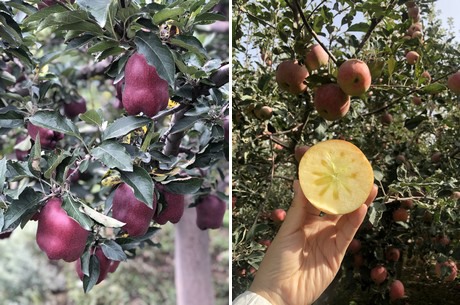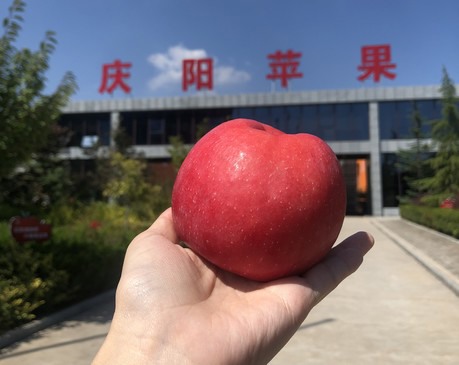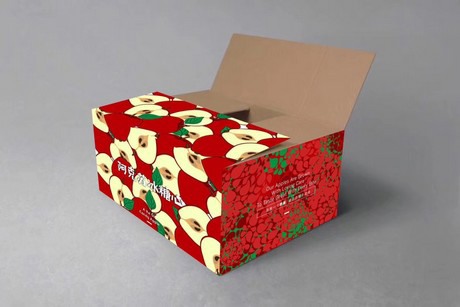The conditions of the Chinese apple market are less than ideal this year. The purchase price dropped by almost half in comparison with last year. However, many apple production areas still report cases of unmarketable apples. Manager Li Ying of Qingyang City Qingxin Fruit Industry Co., Ltd. recently talked about the conditions of production and retail in the Chinese apple industry this year.

"The apple harvest season was delayed by half a month in comparison with previous years. This was the result of excessive rainfall and cold temperatures. The red Fuji apple harvest in Qingyang began this year in early October and is almost over now. The last supply of fresh red Fuji is on the market. The product quality suffered from severe outbreaks of moldy core disease. The probability that an apple is infected is much higher than in previous years. However, our workers are experienced in the identification of infected apples. They tap on the apples to listen to the sound and they check the crown of the apple for signs of yellowing. They carry out the first selection of our apples. When they discover an apple that is infected, we immediately stop our purchases from that particular apple orchard," explained manager Li.

"The market conditions are less than ideal this year. The price dropped by 40%-50% in comparison with last year. Earlier this season, some farmers fixed the price at the same level as the highest price last year. This caused a divergence between market prices and prices in production areas. Furthermore, this year the harvest was abundant. Supply exceeds demand. The first fresh apples began to enter the market in August. That is when the price began to fall. This development is clearly visible in the price changes for Huaniu apples. They cost around 3.7-3.8 yuan [0.53-0.54 USD] per 0.5 kg at the start of this season, but that price dropped to only 0.6-0.7 yuan [0.09-0.10 USD] per 0.5 kg by the end of the season."
"Many orchards were unable to make a profit. They could only try to break even. In some production areas the apples became unmarketable. However, the low prices only increased our sales volume. We sold Gala in August, Huaniu in September, and red Fuji in October. So far we have sold around 2,000 tons, and we still have around 6,000 tons in storage."

When asked about consumer preferences, manager Li stated, "red Fuji apples are our best-sellers in the domestic market. The red Fuji apples from Gansu in particular are quite popular. They have a high sugar content with a slight hint of sour. They are also crisp and fresh. Apart from the red Fuji from Gansu, we also do well with the online sales of the Sugar Core apples from Aksu, Xinjiang. The sugar content of this apple variety is extremely high. When you cut them open you can see the sugar core, which is a unique characteristic of this apple. Our main export markets are Southeast Asia and Russia. We mainly export the smaller mid-to-low-end red Fuji apples to these markets. We are also in trade negotiation with supermarkets chains in Hong Kong and Singapore. We hope to supply high-end Sugar Core apples from Aksu to these markets."
"Apart from the supermarkets, our main sales channels are online. In addition to such traditional varieties as Gala, Huaniu, and red Fuji, we also sell a great number of unique apple varieties for the discerning consumer."
Qingyang Qingxin Fruit Industry has refrigerated warehouse facilities with a capacity for 20 thousand tons of apples. The company also has automated fruit selection and processing lines. In addition to apples, the company also sells durian from Thailand and Mango from Hainan.
For more information:
Li Ying - Manager
Qingyang Qingxin Fruit Industry Co., Ltd.
Tel.: 18293094424
E-mail: [email protected]
Website: https://qingxinbusiness.1688.com/?spm=a261y.7663282.0.0.77def961AcJJJ6
